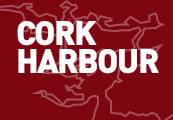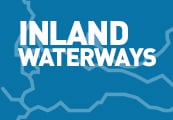#MarineWildlife - Seals are not threatening commercial fishing stocks in Irish waters, with the possible exception of wild Atlantic salmon, according to new research led by Queen's University Belfast.
The findings show that seals are having no significant impact on populations of the most popular species of fish caught for commercial purposes along the south and west coasts of Ireland from Galway to Waterford.
The first comprehensive study of its kind, the conclusions of this research – led by QUB in collaboration with University College Cork and the Marine Institute – suggest that the seals do not compete with fishermen over the stocks.
The issue of seals in Irish waters has been controversial in recent years, and there have been calls from some quarters for culls of the common marine mammals.
"We need to emphasise that this work in no way says that seals cause no problems for the fishing industry," said lead researcher Dr Keith Farnsworld of QUB. "They do create significant problems for static fishing gear, such as the fixed nets used by estuarine salmon fishers, and they may also impact on numbers of wild salmon, although most salmon eaten on these islands is farmed.
"What we are saying is that for most commercially fished species off the south and west coasts of Ireland – herring, mackerel, cod, haddock, whiting and 30 other species – seals are having no significant negative effect on numbers.
"This is because the seals are eating much smaller fish than the larger, mature specimens that fishermen are required by law to catch. So seals are often eating the same species of fish as we buy in the supermarkets, but younger versions of them. And there are hundreds more younger fish than mature fish in any given species.
"In fact, we found evidence that seals may actually be doing the fishermen a favour, by eating some species that prey on the valuable stocks the fishermen are after."
Prof David Reid of the Marine Institute added that "what this work shows is that the only way to really resolve questions like this one is to be able to actually look at the detail, and work out what is going on.
"This work used material as diverse as the gut contents of the seals and the fish, through seal 'scat', to samples taken from commercial catches and research vessel surveys, and elaborate mathematical models.
"The idea of seals being direct competitors with the fishing boats for the fish out there intuitively seems pretty obvious. But actually, in this case, it is not really true. They both 'eat' fish. But not the same fish, and they do not compete with each other.
"This is not to say," he added, "that seals do not compete with fishermen in other ways. In other recent work we showed that fishermen who use set nets round the coast of Ireland can lose fish straight out of their nets to seals. But as with this study, we needed to go into the detail, and get our hands dirty to prove that."
The findings of this new research are based on data from an area roughly 100 miles off south and west Ireland, encompassing the coastlines of counties Waterford, Cork, Kerry, Clare and Galway. The data was collected from seal droppings of both grey and common seals and collated by researchers from University College Cork.
Supplementary information was obtained from the Marine Institute and the International Council for the Exploration of the Seas (ICES).
The data was then interpreted by researchers at QUB's Institute for Global Food Security. Their conclusions have been published today in The Journal of Applied Ecology.
The study will be good news to the ears of seal fans in Northern Ireland, whose grey seal population is having a bumper year in 2015, as BBC News reports.
Co Down in particular is reporting strong numbers at such seal-friendly locations as the Copeland Islands and Strangford Lough, where 107 seal pups were counted this year – a sign of good health for the ecosystem as a whole.
BBC News has more on the story HERE.


























































